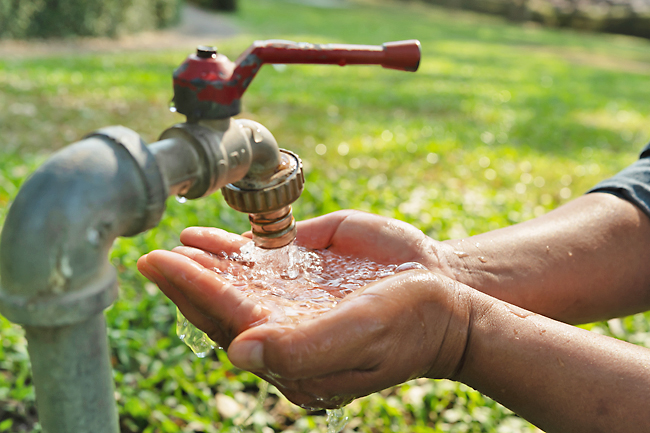Hakim Hayat
World Water Day has been held on March 22 every year since 1993, focussing on the importance of fresh water.
As water is an essential building block of life, each year, World Water Day is celebrated to raise public awareness about the significance of fresh water and sustainable management of this significant resource.
On this occasion, here’s a look at this year’s theme, history, and the significance of World Water Day.
World Water Day celebrates water and raises awareness of the 2.2 billion people living without access to safe water. It is about taking action to tackle the global water crisis. A core focus of World Water Day is to support the achievement of Sustainable Development Goal (SDG) 6: water and sanitation for all by 2030.
In order to accelerate efforts towards meeting water-related challenges, the United Nations (UN) General Assembly declared 2018-2028 as the International Decade for Action: ‘Water for Sustainable Development.’

The objectives of the decade focus on the sustainable development and integrated management of water resources for the achievement of social, economic and environmental objectives and on the implementation and promotion of related programmes and projects, as well as on the furthering of cooperation and partnership at all levels in order to help to achieve internationally agreed water-related goals and targets, including those contained in the 2030 Agenda for Sustainable Development.
The decade also highlights the importance of promoting efficient water usage at all levels, taking into account the water, food, energy, environment nexus; and stresses the importance of the participation and full involvement of all relevant stakeholders, including women, children, young people, older persons, persons with disabilities, indigenous peoples and local communities.
GROUNDWATER, MAKING THE INVISIBLE VISIBLE
This year, the focus is groundwater, an invisible resource with an impact visible everywhere.
Groundwater is water found underground in aquifers, which are geological formations of rocks, sands and gravels that hold substantial quantities of water. Groundwater feeds springs, rivers, lakes and wetlands, and seeps into oceans. Groundwater is recharged mainly from rain and snowfall infiltrating the ground. Groundwater can be extracted to the surface by pumps and wells.
Life would not be possible without groundwater. Most arid areas of the world depend entirely on groundwater. Groundwater supplies a large proportion of the water we use for drinking, sanitation, food production and industrial processes.
It is also critically important to the healthy functioning of ecosystems, such as wetlands and rivers.
They must be protected from overexploitation – abstracting more water than is recharged by rain and snow – and the pollution that currently haunts them, since it can lead to the depletion of this resource, extra-costs of processing it, and sometimes even preventing its use.
Exploring, protecting and sustainably using groundwater will be central to surviving and adapting to climate change and meeting the needs of a growing population.
HISTORY OF WORLD WATER DAY
The idea for this international day of celebration goes back to 1992, the year in which the UN Conference on Environment and Development in Rio de Janeiro took place. That same year, the UN General Assembly adopted a resolution by which March 22 of each year was declared World Day for Water, to be observed starting in 1993.
Later on, other celebrations and events were added. For instance, the International Year of Cooperation in the Water Sphere 2013, and the current International Decade for Action on Water for Sustainable Development 2018-2028. These observances serve to reaffirm that water and sanitation measures are key to poverty reduction, economic growth, and environmental sustainability.
WE MUST ACT NOW
Brunei Darussalam is blessed with adequate water resources for daily consumption. However, due to low water tariffs, the availability of clean water is often taken for granted, leading to water wastage and overconsumption.
According to the Department of Water Services, Ministry of Development, with water consumption in the country averaging 380 litres per person per day, Brunei Darussalam’s domestic water consumption is the highest in the region, double that of Singapore.
With a government subsidy of up to 88 per cent, treated water in Brunei Darussalam is inexpensive and readily available. However, users need to understand and acknowledge that raw water treatment and supply is a complex process which includes raw water extraction, water treatment by filtration and chemical processes, storage and transport to terminal storage tanks, service storage tanks and finally to the end users.
We must act now to ensure sustainable water use. It takes very little effort to instil good water habits from the home, yet small changes can make a big impact. Such changes at home include turning off faucets when not in use, taking showers instead of baths, shortening shower durations and taking urgent action to repair any leaks.



